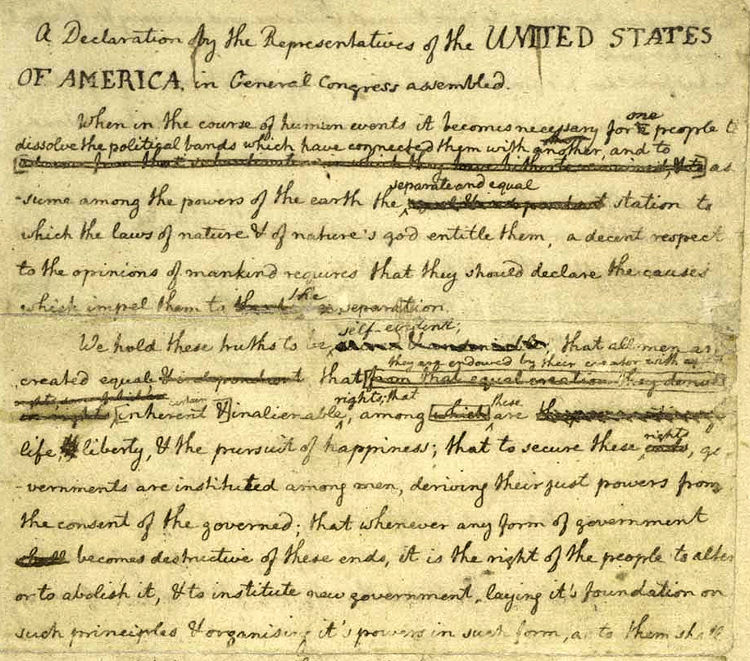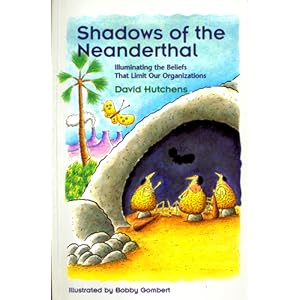 |
| From The History Place.com |
"Hey, I got my rights!" the student hollered gleefully.
"Yes, you do," I agreed,continuing to pass out homework assignments.
"I got the right to be alive, to be liberfied, and to be happy. And homework don't make me happy!"
As the class chuckled and high-fived and fist-bumped and revelled in their pseudo-victory, I considered the semantics of his all-too-common misinterpretation of that part of The Declaration of Independence. A teachable moment ensued.
How many students really do think that the "right" endowed to them is to be happy as opposed to the right to pursue happiness? And to what extent, if any, does the misinterpretation impact their inflated sense of entitlement?
I love arguing semantics with teenagers because frankly, they're good at it. Thus, you're always in for a real challenge when you do. No doubt you've experienced this sort of comment whether as a parent or an educator: "Well, you didn't say X, you said Y."
They revel in argument, so whenever possible, using it as the basis for analysis yields fruitful critical thinking. In our book, we refer to them as "Legal Lemurs", those individuals who can rip apart a rule or policy based on semantic omission or phrasing. It's what leads teachers to emit that unearthly growl.
Using an analogy may help us in the distinguishing of the two meanings for lower-level students:
What is the difference between having the right to be given ice-cream, or having the right to go get ice-cream? What is your responsibility as it pertains to the rights given to you?
As a comparative analysis, it may help students get to a point where they actually acknowledge that they are responsible for their lives and choices. Oh, glorious day, right? This triple-dip assignment--analysis, writing or discussion, and character-building--may push them an inch forward.
I encourage you to write your own analysis before assigning or discussing the topic,though, thinking through things such as how rights imply choices and how responsibilities grow from choices. We may have the right to pursue happiness, but that right also implies a choice as to how, when, and whether to do so. It also leaves the definition of happiness wide open. Further implications to address would be the potential negative impact of that pursuit on another person.
Just because we have the right to do so something doesn't mean we should. A parent has the right to pursue his/her happiness, but not at the emotional expense of a child. Encouraging this depth of thinking emerges more naturally when we've delved into our own thoughts on the topic, first. If you don't have time to actually write your thoughts out formally, consider at least creating an outline. You'll enjoy yourself just an eensy bit more, I'd wager.
You could also have some fun with "the love of money is the root of all evil" (not money alone).
Mindy and some of her former students write more about effective teaching for high-schoolers in Transparent Teaching of Adolescents. Join the conversation!



